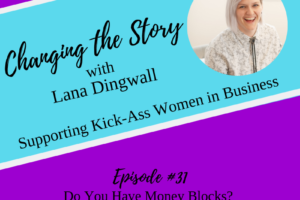We’ve all been there. Something goes wrong at home, at work, and everything and everyone is to blame, but us. It’s a normal defense mechanism that we use a little too often. The issue with not accepting responsibility is you never learn from the mistake that you did in fact make. Accepting responsibility, versus externalizing and listing off all the reasons why you’re not to blame doesn’t get anyone anywhere. It doesn’t fix the problem, and it doesn’t lead to learning how to prevent it from happening again. We use externalization as a shield to protect ourselves from the realization that we aren’t as perfect as we like to think. When we use that shield, we miss a huge opportunity, because in all failures are invaluable lessons to be learnt. Every time something goes wrong, you’re one step closer to getting it right- if you accept responsibility, that is.
Today we’re going to explore an externalization shield I use most often: defensiveness.

By nature I am a very defensive person. I can come up with a million reasons why I did something, why something happened and ensure all blame is taken off of my shoulders. However in the last few years I’ve started to not only see the negative side of this defensiveness for me personally, but for my partner, my family, friends and staff as well. When I meet everyone’s negative opinion of my actions with defensiveness I really do lose an opportunity to better myself. Sure there are things people say to me that I can write off as “they don’t know me very well if that’s what they think”, or “I had justification for doing that” or instead I can think about how I’m possibly coming off negatively to others and figuring out how I can change that. It’s very easy to go through life continuing to be defensive and a lot harder to stop and really think about the things that make you defensive and use them as an opportunity for growth. Personally, I’ve chosen looking at what makes me defensive and learning to view these things as constructive learning tools. Below are a few different tactics I’ve used to become more aware of the situations that make me defensive and using those situations as learning opportunities.

How to turn your defensiveness into constructive learning tools
First off switch roles. Put yourself in the shoes/mind of the person who is making you feel defensive. In what ways from their viewpoint can you agree with what they are saying? How can you learn from that?
Example: I tend to get really defensive when I feel as though anyone is micromanaging me. It makes me feel as though they think I’m incompetent and not able to carry out the task myself. However there are always going to be different types people who micromanage me in different ways. Being able to put myself in their shoes has allowed me to realize that they don’t think I’m incompetent, and in fact it’s usually more a reflection of how they cope with stress and anxiety than anything else. Not to mention seeing things from their viewpoint has given me the tools to actually address the issue with them first hand. I’m more prone to no longer get defensive and upset, and instead am able to open up a dialogue around it. I’m able to express my feelings around the feeling of being micromanaged and in turn they are able to express why they do it. From there we are able to move towards a system where both of us are happy and able to produce our best work.
Are there particular subjects that get you defensive? Maybe it’s when someone asks about how your career is going, or relationship. Is there a trend in what makes you put up your guard? If so, sit with why that might be so. Is it that you’re putting your own feeling of dissatisfaction in that area onto their comments? If so how can you change that?
Example: When I was in school I would pretty much as everyone else in school would, get asked what I was going to do with my degree. I would start to get snippy with people as if they were being rude. Sure it was annoying getting asked that question all the time, but the reason I was so defensive when people would ask, was because I didn’t know the answer. When I figured that out I took the time to make a list of all the things I’d like to do with my degree and therefore when asked that question was confident in my answer. After that when people asked, I was never defensive again.
Is there something that people routinely tell you is a problem? If so, it is a problem and you need to accept that. How can you work towards taking their feedback and using it as a guide to change?
Example: A Lot of the time, a strength is directly tied to a weakness. Everything is good in moderation is a key thing I have to remember. I have a tendency to have a solution to everything. I feel as though there is no problem that can’t be solved. However this can get me into trouble when I’m talking with a friend or my partner. They don’t always want my solutions, because it can come across as insensitive. All they want from me is someone who will listen, not someone who will try to solve everything. This took me a really long time to accept as I see my optimistic problem solving as a strength of mine, not something bad. However by accepting this and moving towards balance, I’ve been able to become a more well-rounded person. In fact, it’s helped so much so because as a coach, I can’t solve people’s problems for them. I have to listen and guide them in the direction they want, not the direction I want to take them in.
Is there a situation you always find yourself in and blame others for it? If so, remember that if something keeps happening to you, you are the common denominator in that situation and it is probably partly your fault. How can you work towards taking their feedback and using it as a guide to change?
Example: For years I blamed my own messiness on other people. It was my brothers mess, my roommate’s mess, it was always someone else’s doing and never my own. However I started to realize that although my brothers and roommates were messy, I was just as bad. I needed to get off my high-horse and start changing my cleaning habits. I’m still not a clean machine, but I’ve improved significantly.



